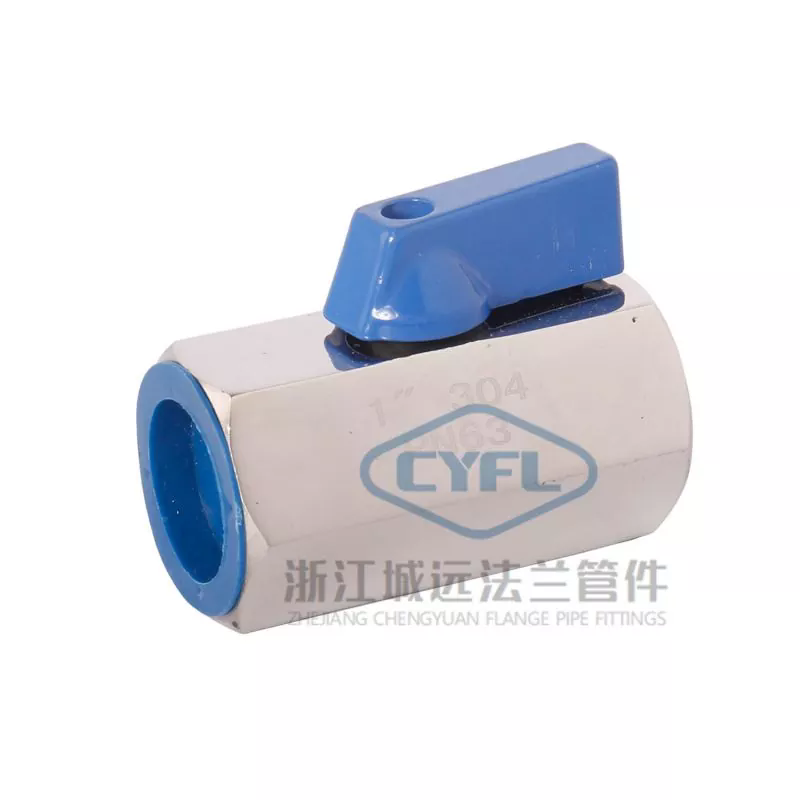Trunnion Ball Valves: A Key Player in High-Performance Fluid Control
2024-08-26
In the world of industrial fluid control, the selection of the right valve is critical to ensure efficiency, safety, and reliability. Among the many options available, the trunnion ball valve stands out as a robust and versatile solution, particularly in high-pressure and large-scale applications. This blog will explore what trunnion ball valves are, their unique features, and why they are the preferred choice in various industries.
What is a Trunnion Ball Valve?
A trunnion ball valve is a type of quarter-turn valve that uses a ball with a hole through the middle to control the flow of fluids. Unlike a floating ball valve, where the ball is only supported by the valve seats, a trunnion ball valve features a ball that is anchored by additional mechanical support, known as trunnions. These trunnions are located at the top and bottom of the ball, providing extra stability and allowing the valve to handle higher pressures and larger sizes more effectively.
Key Features of Trunnion Ball Valves
1. Enhanced Pressure Handling: The trunnion design allows the valve to manage higher pressures by distributing the force exerted by the fluid more evenly. This reduces the load on the valve seats, minimizing wear and extending the valve's lifespan, even in demanding environments.
2. Reduced Operating Torque: Due to the additional support provided by the trunnions, the operating torque required to turn the valve is significantly reduced. This makes it easier to operate, whether manually or through an actuator, especially in large or high-pressure systems.
3. Leak Prevention: Trunnion ball valves are designed with double block and bleed functionality, which allows for the isolation of the valve's upstream and downstream sides. This feature is crucial in preventing leaks, ensuring a secure shutoff, and providing an additional level of safety in critical applications.
4. Versatile Materials: Trunnion ball valves are available in a variety of materials, including stainless steel, carbon steel, and special alloys, making them suitable for a wide range of fluids, including corrosive, abrasive, and high-temperature media.
5. Sizes and Configurations: These valves come in a broad range of sizes and configurations, from small-diameter valves for laboratory use to large-diameter valves for pipelines. This versatility makes them adaptable to various industries and applications.
Advantages of Using Trunnion Ball Valves
1. Reliability in High-Pressure Environments: One of the main advantages of trunnion ball valves is their ability to handle high-pressure applications. The trunnion design ensures that the valve maintains its integrity and performance, even under extreme pressure conditions, making it ideal for oil and gas, petrochemical, and power generation industries.
2. Long Service Life: The reduced wear on the valve seats due to the trunnion support extends the service life of the valve, reducing maintenance costs and downtime. This durability makes trunnion ball valves a cost-effective solution over the long term.
3. Safety and Integrity: With features like double block and bleed, trunnion ball valves provide a higher level of safety, which is essential in industries where the prevention of leaks and contamination is critical. This makes them an excellent choice for applications where fluid integrity and environmental protection are paramount.
4. Efficient Operation: The lower operating torque of trunnion ball valves means they can be operated more easily and quickly, which is beneficial in automated systems. This efficiency in operation enhances overall system performance, particularly in processes that require rapid or frequent valve operation.
Applications of Trunnion Ball Valves
- Oil and Gas Industry: In upstream, midstream, and downstream operations, trunnion ball valves are used to control the flow of oil, gas, and other fluids. Their ability to handle high pressures and provide a secure shutoff makes them essential in this industry.
- Petrochemical Plants: The trunnion ball valve’s robust design and resistance to harsh chemicals make it ideal for use in petrochemical plants, where it is used to manage the flow of various chemicals and feedstocks.
- Power Generation: In power plants, trunnion ball valves are used to control steam, water, and other fluids under high pressure and temperature conditions. Their reliability ensures continuous operation and safety in critical systems.
- Water and Wastewater Treatment: Trunnion ball valves are also used in water treatment facilities, where they control the flow of water, chemicals, and sludge. Their durability and leak-proof design are crucial for maintaining the integrity of water systems.
Conclusion
Trunnion ball valves are a critical component in many high-pressure and high-stakes fluid control applications. Their unique design, which includes additional support for the ball, makes them capable of handling extreme conditions while maintaining reliability, safety, and efficiency. Whether in oil and gas, petrochemicals, power generation, or water treatment, trunnion ball valves offer the durability and performance needed to keep industrial systems running smoothly. For any industry requiring a robust and reliable valve solution, trunnion ball valves are a top choice.



